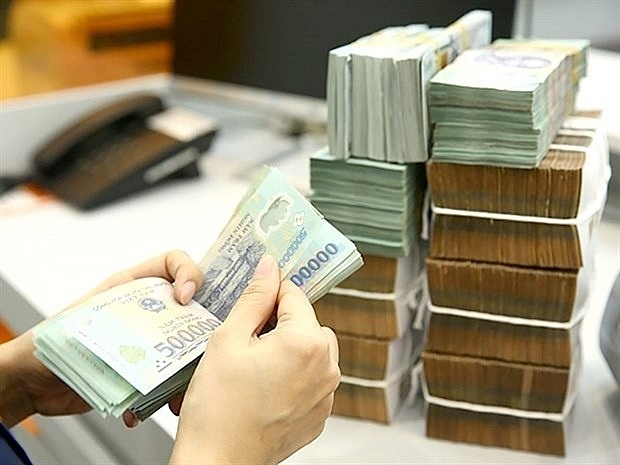Credit tightening going some way to avert real estate bubble
 |
| Credit tightening going some way to avert real estate bubble, photo VNA |
According to the State Bank of Vietnam (SBV), tightening real estate credit has restricted speculation and helped the market become more transparent.
The SBV underlined that the move only aims to restrict segments with a high risk of speculation in major projects, instead of impeding investment flow in real estate.
In its latest strategy for the banking industry, the SBV said credit must be channelled into production and business industries to create positive impacts on socioeconomic development. It also urged banks to refrain from providing credit to businesses operating in risky areas, such as real estate, securities, corporate bonds, or build-operate-transfer and build-transfer transport projects.
Tran Khanh Quang, general director of Viet An Hoa Real estate Investment JSC. said that inflation combined with banks tightening credit to real estate, in addition to some instances of bond issuance fraud, are factors that have a great influence on the market.
According to Quang, real estate businesses will have to restructure their portfolios to bring to the market more suitable products. Buyers, meanwhile, will also have to be more cautious about the developers’ capacity. “I think in the next 2-3 months, the real estate price hike will halt and gradually go down,” said Quang.
Large real estate developers are facing difficulties to access loans from banks and issuing bonds to the market, Quang added, while developers try to find solutions to split properties and reduce total values.
“I expect that house prices on the market will go down in late 2022. Moreover, when buyers have a wait-and-see attitude, prices of real estate will surely go down,” Quang said.
According to Nguyen Quoc Anh, general director of batdongsan.com, residential, industrial property, and landed houses are fields that will thrive in the coming period.
Housing real estate’s recovery is being driven by supply and demand factors, lower interest rates, and a more complete legislation framework. Especially, the government’s national housing development strategy for 2021-2030 has pointed out that developing affordable housing products for low- and middle-income people is a key strategy.
The industrial property segment, meanwhile, could be the most positive and stable bright spot in the real estate market in 2022. There is currently an increasing demand for production and business premises, including real estate serving logistics activities to meet the ambitions of international and domestic manufacturers. Meanwhile, green and eco-industrial zones will be developed in 2022 and beyond, and will be of special interest to investors. At the same time, there will be an increasing demand for cold storage to serve temperature-sensitive products such as vaccines, cosmetics, pharmaceuticals, food, and much more.
“The landed house segment will also continue to improve, especially in projects which were zoned and located where infrastructure development is accelerated,” Quang explained.
Real estate credit currently accounts for about 18-20 per cent of the total outstanding loans of the economy. Lending growth in this sector has also gradually cooled down, from over 26 per cent in 2018 to 12 per cent last year.
| Trinh Hoai Duc - Chairman, RealPlus
Some banks have stopped disbursing real estate loans and focusing on directing credit to production and business areas. This will clearly affect the affordable houses for the end-users segment who are using loans for buying houses. Mid and high-end buyers are mostly capable of buying houses without loans from banks, therefore they are not impacted by the tightening credit. In addition, some investors who are selling products based on the financial support policy will have to increase the selling price and prolong the payment schedule. The liquidity of the project will therefore also be affected. However, the credit tightening in the short term will not reduce the prices of projects being sold in the market. But with future projects, the investor will have to change the sales policy because they cannot put in financial support to increase their selling price anymore. Nguyen Huong - General director, Dai Phuc Land
Despite many legal obstacles being addressed, there will still be a lag in the implementation of regulations. Therefore, project supply is still in slow progress and this process is likely not to improve this year. Along with that, if the government continues to have support packages for businesses or home buyers such as loan interest support, or project investment procedures are improved and simpler, it will certainly have a great impact on the recovery of the real estate market. The promotion of public investment in 2022 will also be an important factor contributing to the excitement of the real estate market in the near future. Foreign investors always aim for the development of the real estate market in the medium and long term. They will continue to pour investment into potential real estate areas and projects, especially satellite urban areas with convenient transport infrastructure. |
What the stars mean:
★ Poor ★ ★ Promising ★★★ Good ★★★★ Very good ★★★★★ Exceptional
Related Contents
Latest News
More News
- An Phat 5 Industrial Park targets ESG-driven investors in Hai Phong (January 26, 2026 | 08:30)
- Decree opens incentives for green urban development (January 24, 2026 | 11:18)
- Public investment is reshaping real estate’s role in Vietnam (January 21, 2026 | 10:04)
- Ho Chi Minh City seeks investor to revive Binh Quoi–Thanh Da project (January 19, 2026 | 11:58)
- Sun Group launches construction of Rach Chiec sports complex (January 16, 2026 | 16:17)
- CEO Group breaks ground on first industrial park in Haiphong Free Trade Zone (January 15, 2026 | 15:47)
- BRIGHTPARK Entertainment Complex opens in Ninh Binh (January 12, 2026 | 14:27)
- Ho Chi Minh City's industrial parks top $5.3 billion investment in 2025 (January 06, 2026 | 08:38)
- Why Vietnam must build a global strategy for its construction industry (December 31, 2025 | 18:57)
- Housing operations must be effective (December 29, 2025 | 10:00)



 Tag:
Tag:



















 Mobile Version
Mobile Version